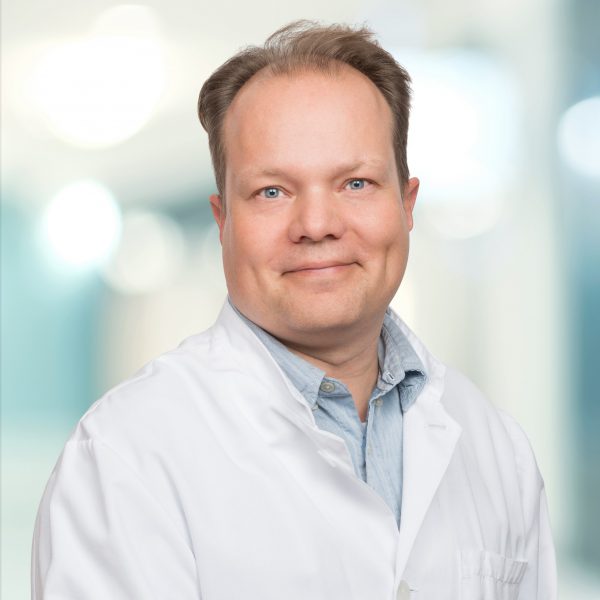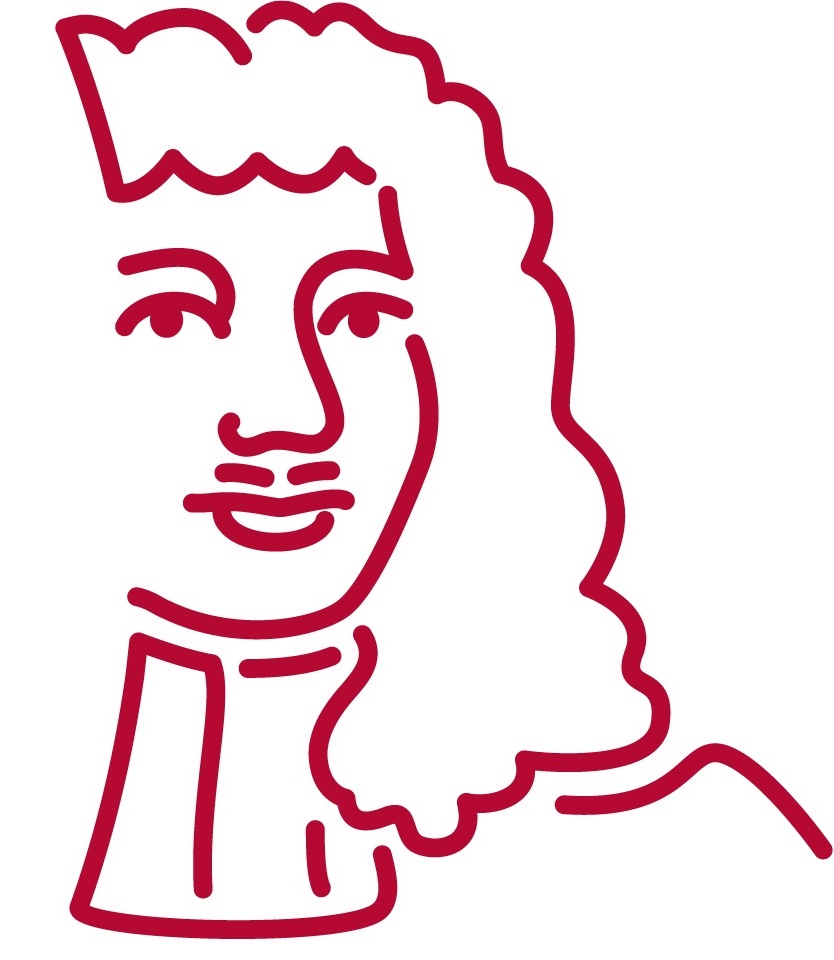Whole genome sequencing to improve individual cancer treatment in Finland

Since August 2019, Docrates, a private cancer center in Finland, uses the whole genome sequencing test from Hartwig Medical Foundation to support personalised treatment for their patients. Juha Kononen, chief physician in personalized oncology at Docrates Cancer Center: ”Hearing Emile Voest speak at a scientific meeting it immediately made sense to me that instead of doing small panel-based sequencing, establishing a comprehensive test that can analyse the whole genome at once is eventually going to be much more efficient. I immediately became interested in exploring the possibility of working together and utilising Hartwig Medical Foundation’s expertise and services”.
“My personal background is cancer genomics and genomics based research. I was a scientist at the National Institute of Health in the USA before I became an oncologist. I remember well when the whole human genome was sequenced for the first time. I immediately recognised that this would be a highly valuable approach for oncology. The key point for me was that Hartwig Medical Foundation has thought through how one could effectively use the sequencing data in clinical practice. Furthermore, Hartwig Medical Foundation provides the tools for enrolling patients into clinical trials like the DRUP-trial for drug repurposing. I like the DRUP setup with the small cohorts that quickly can be opened and closed depending on what the results look like. It is this well planned and designed approach; not a simple test, but a full pipeline, integrated in the standard of care with the WGS test as a central enabling technology.
Advantages of whole genome sequencing (WGS) over panel-based sequencing
We discuss a sequencing report generated by Hartwig Medical Foundation in our tumor board meeting. The first question is always: did we get more insight from the DNA-analysis from Hartwig than we would have received from other panels? Typically, the answer is ‘yes’, we do get more out of the Hartwig reports, particularly the patterns of genetic alterations are interesting. The genomic score of mutation burden, the overall pattern of genomic complexity; those are the things that you cannot get from just panel-based sequencing. The main thing is that you can visualise the whole complexity or simplicity of the genomic changes in the tumor. Obviously, there are some individual changes that we would definitely have missed with a panel-based approach, like having a mutation on one allele and loss the other due to a copy-neutral rearrangement that effects the transcription of the gene. But mainly, it is the complete pattern of all types of genetic alterations and the resulting patient-specific signatures that is important to us and the patients.
Pharmacogenetics
In addition to what Hartwig Medical Foundation already offers, we would also like to explore the germline DNA and look for pharmacogenomics and variants that are associated with either accelerating or decreasing the efficacy of drugs. For example, we would like to look for DPYD variants that are associated with 5-FU toxicity as a simple explanation. I am very excited that Hartwig is planning to add this to the patient report next year.
Indications for whole genome sequencing
We use WGS in many different areas. Quite often for patients with a rare type of cancer. Sarcomas are obviously a good candidate, because they harbor a broad range of relevant fusion genes for example. We have also done some research in the utility of the approach in more common types of cancers, including pancreatic cancers and colorectal tumors. We use WGS for patients with carcinoma of unknown primary to see if we can find the primary source and offer them treatments.
Basically, we use WGS in scenarios where we are looking for experimental therapeutic approaches and where we think there could be a molecular angle that could be exploited for the benefit of the patient.
Fresh tissue
One of the reasons why we have not used more of Hartwig’s services is that Hartwig requires freshly frozen human tissue. Since our patients already have been treated – they come here in a situation where traditional options have run out – we are facing the situation that sometimes there is not a good site where we can retrieve a fresh tumor biopsy. We also want to be sure that the core needle biopsies are safe for the patient.
Other sequencing facilities in Finland for whole genome sequencing for cancer
We use different kinds of sequencing services, but none of them capture the ‘whole picture’, which is what appeals to me in whole genome sequencing. You really need to understand the genome and use data analysis pipelines that are already established and utilise this in the context of cancer care. It is a completely different thing, to analyse the genome for another kind of disease than for cancer. Therefore, the sequencing services that are available at Finnish universities are mostly catering for other disease purposes (typically inherited disorders) or for basic research purposes. They do not work in a clinical setting with the constraints and medical services that need to be taken care of as well. We use different kinds of services, so we are familiar with what is available by other service providers.
Reimbursement
There has been a long effort of setting up a nationwide genome sequencing services center for Finland. Unfortunately, there has not been government funding for this yet. The process of getting government funding for this is so long and tenuous that it has not really progressed. I know many of the government funding issues commenced this way. So yes, there will be a Finnish national sequencing center, but it is not up and running to a point where it could be efficiently used for clinical purposes for cancer patients. I was very happy to hear that Hartwig Medical Foundation was boosted by filantropy and that we could use your whole genome sequencing facilities.
Unfortunately, neither does the Finnish government pay for the whole genome sequencing test. The patients pay for it themselves. Overall, the pricing of the test has been reasonable, but of course, it is prohibitive for some of our patients. We have a good courier to bring the biopsy and the blood to Amsterdam, but the costs do add up.
Moreover, if we find a targetable DNA alteration in the whole genome sequencing, the treatment is not always reimbursed. The reimbursement system in Finland is quite slow and many of the reimbursements are closely tied to the disease, the organ specifically. We first find out if there are any clinical trials in which the patient could participate. If not, they may have to pay for it themselves.
All oncologists in Finland have heard about the DRUP program in the Netherlands. It is wonderful work. I feel they are very impressed by this program and the facilities established. That is exactly what should be done.
We have discussed the reimbursement with insurance companies and we have set up a joint offering with one insurance company and we are in discussions with another one. They will include certain genetic tests as well as a part of the cost coverage. Still, insurance companies are in a ‘test’ mode to see how it would work out. Some policies allow for genetic tests as a part of the diagnostics.”
Docrates Cancer Center
Docrates Cancer Center is a private cancer center serving an adult clientele (no children) that are mostly from Finland, but also from other Scandinavian countries and Russia. They treat patients with all sorts of cancer, including hematology. The staff consists of fulltime oncologists as well as consultants and private oncologists that work in public health care and additionally work at Docrates Cancer center as private consultants. In this way all the expertise areas are covered.
You read an article in the category Billing code. You may also be interested in Cancer of Unknown Primary, End of Treatment, OncoAct or Patients' stories.All news
Also read

Growth Fund invests 325 million euros in Oncode-PACT to accelerate the development of cancer drugs
The National Growth Fund invests 325 million euros in the Oncode-PACT plan to accelerate the preclinical development process of cancer …

Antoni van Leeuwenhoek hospital brings comprehensive DNA test closer for all cancer patients
This year, Antoni van Leeuwenhoek hospital joined forces with Hartwig Medical Foundation to deploy the most comprehensive DNA test available …

Ten years of Hartwig Medical Foundation: a retrospect and a glimpse of the future
In its first decade, Hartwig Medical Foundation has made significant progress towards its goal of providing access to all diagnostic …

The complete DNA test is an additional tool to help us discover the origin of the cancer in patients with CUP, often enabling us to identify this primary tumor. In addition, the test often reveals new options for targeted treatment.